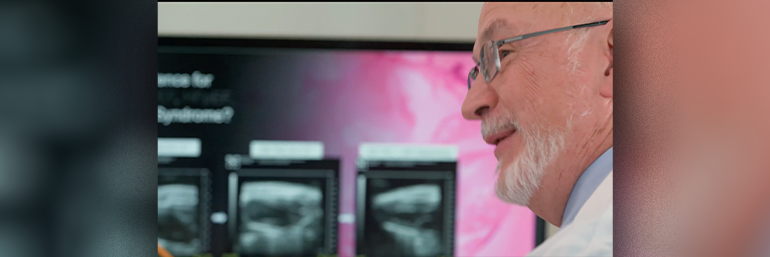Jul 11

Tackling cardiovascular conundrums
“Although Aesculapius himself applies the herbs, by no means can he cure a wound of the heart.”
To be sure, progress has been made since the Roman poet Ovid wrote those lines more than 2,000 years ago in the Epistulae ex Ponto. But heart disease remains the number one cause of death in the world. In the U.S. in 2021, according to the Centers for Disease Control and Prevention, one in five deaths were related to heart disease. The World Health Organization estimates that globally 17.9 million people die each year from cardiovascular diseases.
Researchers at NEOMED are working to change that.
The Heart and Blood Vessel Disease Research Focus Area (HBVD RFA) at NEOMED advances the understanding of cardiovascular diseases with the goal of going beyond stopping their progression and, ultimately, curing them.
“We attack [research questions] from a multidimensional point of view,” HBVD RFA director William Chilian, Ph.D., FAHA, FCVS, said. Studies in the RFA focus on blood vessel growth, ischemic heart disease and heart failure, stem cells and regenerative medicine, and vascular disease.
In his own lab, Dr. Chilian studies what he calls “clinical conundrums of cardiology.” Those include Takotsubo cardiomyopathy, heart failure with reduced ejection fraction, heart failure with preserved ejection fraction, and myocardial ischemia with no obstructive coronary arteries (INOCA). Publications of his research have been cited 19,495 times, and with an h-index of 81, Dr. Chilian certainly ranks among the Key Opinion Leaders of NEOMED.
It Starts with the Science
Joseph Pietrolungo, D.O., vice chairman of the Department of Cardiology at Summa Health, has treated patients with heart disease for nearly 30 years.
“Heart failure is the final manifestation of many forms of heart disease. There’s no one size fits all,” he noted.
He is hopeful that research like that done at NEOMED can provide the basis for new and better treatments for his patients.
“It always starts in the laboratories with an idea,” Dr. Pietrolungo said. “The science is what will make those diseases easier to treat and hopefully, someday, completely out of our population.”
Watch: Dr. Chilian shares more information about the HBVD RFA


